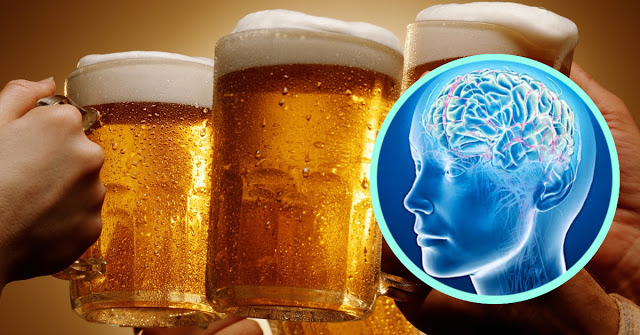A recent study, published in the Journal of Agricultural and Food Chemistry, states:
“Xanthohumol, a polyphenol chalcone from hops has received increasing attention due to its multiple pharmacological activities. As an active component in beers, its presence has been suggested to be linked to the epidemiological observation of the beneficial effect of beer drinking.
Our results demonstrate that Xn is a novel small-molecule activator of Nrf2 in neuronal cells and suggest that Xn might be a potential candidate for the prevention of neurodegenerative disorders.”
So, it has been established that this Xncompound improves cognitive function and slows down dementia by protecting brain cells from damage. In other words, the scientists suggest that people who have a pint of beer with their Sunday dinner might be better able to fend off the progression of neurological disorders such as Alzheimer’s and Parkinson’s diseases.
The professor in the OSU Department of Biomedical Sciences, and corresponding author on this study, Kathy Magnusson,also said:“This flavonoid and others may have a function in the optimal ability to form memories. Part of what this study seems to be suggesting is that it’s important to begin early in life to gain the full benefits of healthy nutrition.”
Jianguo Fang and colleagues note that mounting evidence suggests that oxidative damage to neuronal cells contributes to the development of diseases that originate in the brain: “If scientists could find a way to guard these cells from this type of damage, they might be able to help prevent or slow down Alzheimer’s disease, Parkinson’s disease and other neurodegenerative conditions.”
The scientists also found xanthohumol to be a good candidate for cardiovascular protection and anticancer prevention.
Daniel Zamzow, an ex OSU doctoral student and now a lecturer at the University of Wisconsin/Rock County notes how other research focusing on xanthohumol has revealed even more benefits.
In addition to improving cognitive flexibility,xanthohumol can speed up metabolism and reduce fatty acids in the liver. Another study has even found evidence for the potential application of Xn as a novel, readily available chemo preventive agent.
But in his recent study, the compound didn’t have the same effect on older mice tested, so Zamzow made it clear: “…Unfortunately it did not reduce palmitoylation in older mice, or improve their learning or cognitive performance, at least in the amounts of the compound we gave them.”
The health-promoting advantages of wine have long attracted attention, leaving beer perks in the shadows. But it looks like wine-the drink of gods doesn’t hold all the magnificence after all.
This recent research has given us at least one good reason to drink some brew from time to time.However, even this research does not showcase indulging and excessive drinking of beer.“Moderation is the inseparable companion of wisdom, but with it genius has not even a nodding acquaintance,” once said Charles Caleb Colton.
